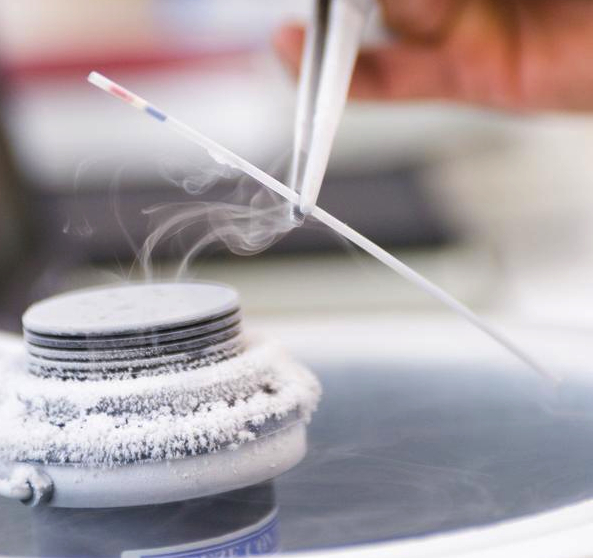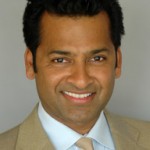By Amanda Grant, President & C.E.O., USAdopt, L.L.C.
Adopting a child always poses risks. Adopting a child from another country poses risks that are often out of our control – whether it’s due to a change in economy, …
Tag: risks
Egg Freezing No Longer Experimental
Egg freezing is no longer considered “experimental” by the American Society for Reproductive Medicine (ASRM).
Last week the ASRM lifted the “experimental” designation on egg freezing. This decision was based on published studies indicating that frozen eggs worked as well as fresh eggs in young women. Safety data was also reassuring.
While it is promising to see the “experimental” designation lifted, the ASRM still maintains that egg freezing should not be used to counteract reproductive aging – in other words, those women over the age of 35 seeking fertility preservation. The reason for this stance continues to be a lack of published data on birth rates and safety in this group of women.
In 2009 I was invited by the ASRM to participate in a national debate on the “experimental” designation of egg freezing. My conclusions at that time still hold true: women who wish to counteract reproductive aging should be given the opportunity to make an informed decision on egg freezing after being counseled on the appropriate risks and alternatives and should seek advice and treatment from an experienced physician who has demonstrated births from eggs of women frozen while in their 30’s.
You can read the in-depth report released by the the ASRM about oocyte cryopreservation here.
New Egg Donor Informed Consent Tool (EDICT) Demonstrates and Documents Prospective Donors’ Understanding
Prospective egg donors must assimilate a great deal of information in the informed consent process, yet it remains difficult to determine the extent of their actual understanding of egg donation and its potential risks. To address this need, researchers at the University of California San Francisco have developed and are presenting at ASRM’s Annual Meeting a two-part assessment of informed consent effectiveness, the Egg Donor Informed Consent Tool (EDICT).
Sperm Bank: Broadcaster’s Allegations are Wrong
Nordic Cryobank admits that one of its sperm donors carried a genetic disease but says it was right to delay informing fertility clinics about his condition.
“Two women received sperm from sick donor.”
“Sperm Bank covered up inherited disease.”
These were two of the headlines that public broadcaster DR ran earlier this week following an exposé on its program 21 Søndag about nine children, all conceived using the same donor’s sperm, all carrying a hereditary disease. Read full article.
Danish Sperm Donor Passes on Severe Genetic Disorder to Five Children
A Danish sperm donor passed a severe genetic disorder to five children after tests did not detect it and the fertilisation clinic failed to act on evidence that a baby had been diagnosed with the illness.
The man, known only as “donor 7042”, fathered 43 children, in breach of rules limiting the number to 25, after giving sperm to Copenhagen’s Nordisk Cryobank clinic.
But as well as fertilising the clinic’s clients, the donor was also transmitting the tumour-producing nerve disorder known as Neurofibromatosis type I (NF1) or Von Recklinghausen’s disease. Read full article.
New CDC Recommendation: One-Time Hepatitis C Test for Baby Boomers
Current CDC recommendations focus on testing individuals with known hepatitis C risk factors. However, more than 75% of American adults with hepatitis C are baby boomers and baby boomers are five times more likely than adults of other ages to be infected. Likely reasons for this disproportionate infection rate are that this generation may have received blood transfusions before screening of the blood supply began 20 years ago and because they came of age before HIV brought awareness of the risks of unprotected sex and needle sharing.
Birth Defects Associated With Dad Jobs
The occupation of future fathers may be associated to a higher risk of birth defects in their infants. A study published online in Occupational and Environmental Medicine has revealed that the risk of birth defects in their offspring is higher if the father has a certain type of job.
Even though earlier studies have associated certain occupations with a higher birth defect risk in infants, they did not link certain birth defects to certain occupations, they rather placed the defects and occupations under one umbrella in order to achieve a larger sample size, leaving the results somewhat obscure.
The new study results were based on data that included the occupation of around 1,000 fathers from the ongoing US National Birth Defects Prevention Study, which investigates various potential risk factors for major birth defects in a large population sample. All men became to father to a child between 1997 and 2004 that had one or more birth defects, including defects amongst stillborn, aborted and live born babies. The team also surveyed slightly more than 4,000 parents of children with no congenial abnormalities telephone interviews.
Three Men Want to Know How Their Frozen Sperm Was Destroyed
Three men who claim their sperm was destroyed while it was being stored by Northwestern Memorial Hospital and the Northwestern Medical Faculty Foundation filed an emergency motion today to protect records and to inspect the hospitals’ cryopreservation system.
The men had their sperm frozen because they suffer from illnesses or were facing medical treatment that could make them infertile, lawyers for Corboy & Demetrio said today in a press release.
In one case, a 33-year-old suffered from leukemia and was told radical chemotherapy treatment would likely make him sterile. In a second case, a 26-year-old who suffers from an illness that could render him sterile preserved his sperm because he planned to one day become a husband and a father, according to the release.
The third man, 48, preserved his sperm because he also suffers from a condition that could make him sterile.
On April 21 and 22 — a Saturday and a Sunday — a cryogenic storage tank used for long-term storage of sperm samples malfunctioned and a round-the-clock alarm system attached to the unit failed to alert technicians, according to a press release from the Northwestern Medical Faculty Foundation. The press release said the information in it is attributable to Dr. Phillip Roemer, the chief medical officer of the Northwestern Medical Faculty Foundation.
High Doses of Hormones Faulted in Fertility Care
Two days after Debra Demidon underwent in vitro fertilization, she gained more than 30 pounds in fluid and suddenly was struggling to breathe.
Doctors diagnosed severe ovarian hyperstimulation syndrome (OHSS), a complication seen in some women who undergo fertility treatment. It landed Ms. Demidon in the hospital for five days; doctors ultimately drained 6.5 liters of fluid from her body. She missed three weeks of work, and by the time it was over, she and her husband had spent all of their savings.
“It was my first time doing IVF, and I’ll never do it again,” said Ms. Demidon, 28, a quality assurance specialist in Cayuga, N.Y. “It was awful. When you have that much fluid in you, it puts pressure on everything.”
OHSS is a little-known complication of fertility treatments that rely on high doses of hormones, which are standard in the United States and the United Kingdom; the syndrome is not the only health problem to be linked to in vitro fertilization. Fertility clinics in Europe and Japan have turned to a safer, low-dose form of IVF, but clinics here have largely resisted on the grounds that the success rates for low-dose IVF are not as high.
“Pregnancy rates are lower, and more cycles of IVF are necessary” with low-dose IVF, said Dr. Glenn L. Schattman, a fertility doctor at NewYork-Presbyterian/Weill Cornell Medical Center and president of the Society for Assisted Reproductive Technology.
But some critics are urging the industry to reconsider.
15 Top Medical Organizations Agree on Hormone Therapy Use; 10 Years Have Passed Since Women’s Health Initiative Raised Questions
After 10 years of debate regarding the risks and benefits of hormone therapy, 15 top medical organizations have come together to issue a statement of agreement regarding the benefits of hormone therapy for symptomatic menopausal women.

